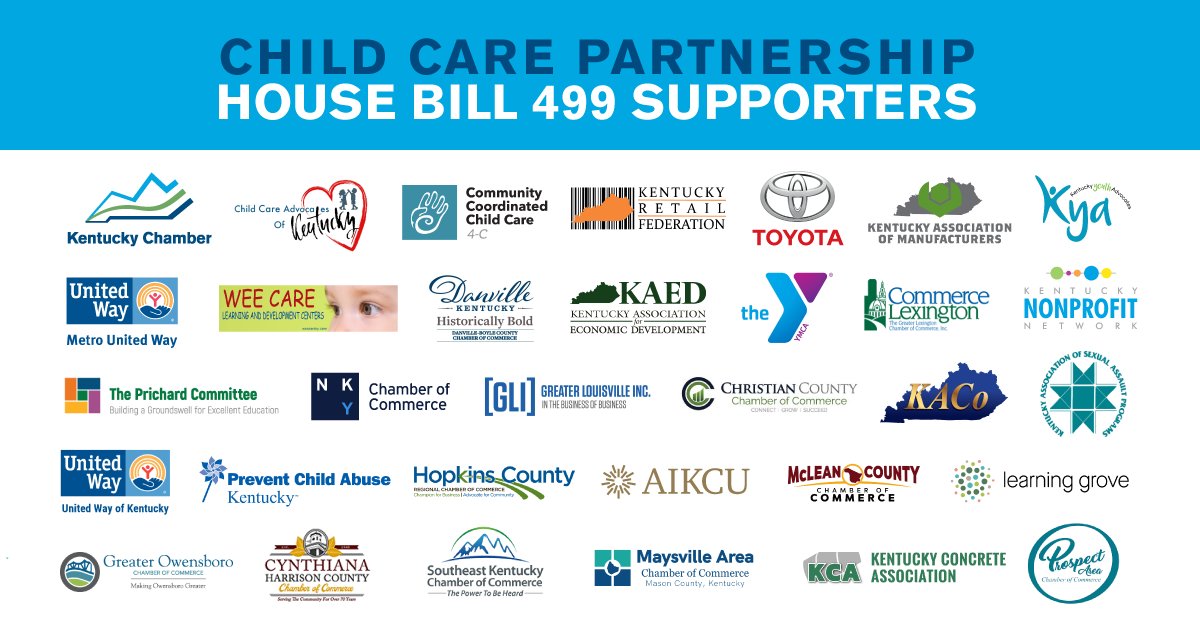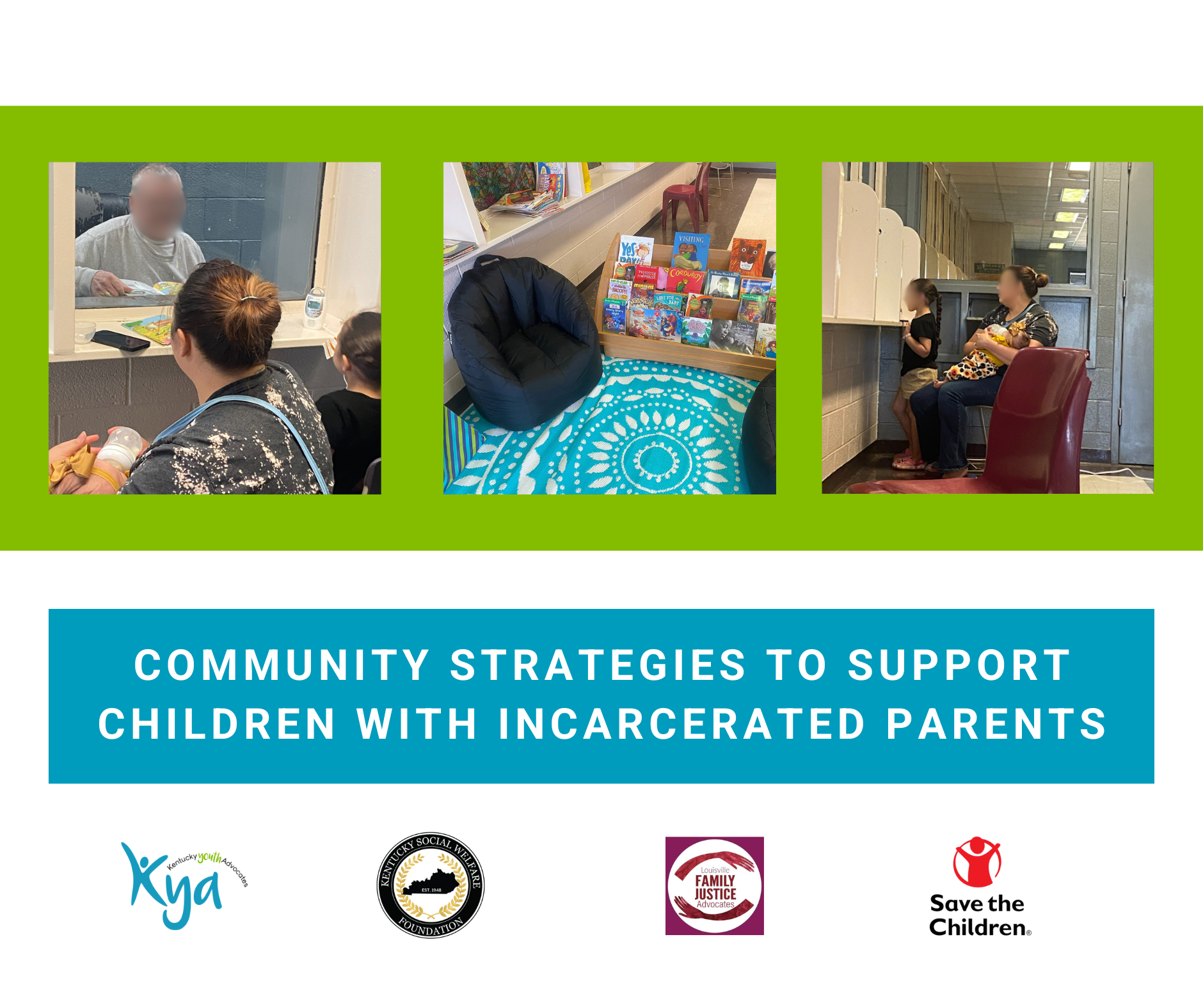By Mandy Simpson
Here’s what we know:
- Kentucky families are struggling to afford child care. With annual costs reaching up to $11,000 for one infant, this is the largest expense in too many Kentucky homes. Parents are being forced to choose between their careers and caring for their children—and we know which choice they’re making.
- A lack of access to child care is a primary contributor to Kentucky’s labor shortage and chronically low workforce participation rates. Nearly 50,000 Kentuckians listed “caring for children not in school or daycare” as a key reason for not participating in the workforce in January 2022, according to Census Bureau data. Meanwhile, Kentucky has approximately 140,000 open jobs. Kentucky does not, however, have a vehicle to drive private-sector resources into the child care programs it depends upon.
- The costs of these child care programs are rooted in fixed expenses—educator wages, facility mortgages/rent, and utilities—as well as quality investments. We cannot cut these critical expenditures in health, safety, and education.
 So yes, we know it looks bleak. But we also know a solution lies within these challenges.
So yes, we know it looks bleak. But we also know a solution lies within these challenges.
House Bill 499, sponsored by Representative Samara Heavrin, seeks to establish the Employee Child Care Assistance Partnership, an innovative program encouraging employers to assist employees with the cost of child care. The partnership accomplishes this goal by matching employer child care benefits with state dollars. For example, if an employer provides $200 per month in child care assistance for an employee, the state will match that contribution provided all program requirements are met.
At the highest level, this partnership improves access to quality child care, supports workforce participation, and help businesses attract and retain employees. But let’s breakdown these benefits.
On the home front, HB 499 recognizes that low- and middle-income families are vulnerable to the necessarily high costs of child care and targets resources accordingly. The partnership provides a 100% state match for families living below state median household income and a gradually decreasing match for parents living above this threshold. This changes kitchen table calculations for families. The additional resources will help parents to continue their careers, select child care providers based on their unique needs, and make care decisions based on family morals—not just math.
For employers, offering child care assistance as benefit is becoming an increasingly critical strategy for recruiting and retaining employees (see above workforce data). Some of Kentucky’s largest businesses are leading the way by providing onsite child care or offsite child care partnerships. However, small- and medium-sized businesses are generally unable to offer such services due to costs, scale, liability, or zoning restrictions. The Employee Child Care Assistance Partnership provides the opportunity for more businesses to offer child care benefits in a meaningful way because the partnership effectively allows them to increase—in many cases double—the size of their contribution. While nonprofit and for-profit employers of all sizes can participate in the partnership, HB 499 ensures small businesses access by including a requirement that 25% of program funds support contributions matches made by employers with fewer than 50 full-time employees.
For child care providers, the structure of the Employee Child Care Assistance Partnership can act as a stabilizing force during a time of crisis. Both the contributions from employers and the associated state match will be paid directly to child care providers based on their billing cycles. This payment schedule will be contracted in an annual agreement between the provider, the employer, the state, and the employee, who is responsible for all costs not covered by the partnership. The increased reliability of these payments creates increased financial security that can allow providers to make direly needed investments, including providing competitive wages for educators, increasing service to full licensed capacity, and offering a fuller range of operating hours.
 And this brings us to the benefits to all Kentucky families seeking child care. The more stabilizing resources available to existing and potential child care providers, the greater the likelihood that operating providers will expand and new providers will have the confidence and capital to enter the sector. Employers can build partnerships to both grow existing programs and bring in or begin new programs. In either scenario, the Employee Child Care Assistance Partnerships creates a uniquely effective structure in which an increased demand for child care is backed by the resources needed to help meet it.
And this brings us to the benefits to all Kentucky families seeking child care. The more stabilizing resources available to existing and potential child care providers, the greater the likelihood that operating providers will expand and new providers will have the confidence and capital to enter the sector. Employers can build partnerships to both grow existing programs and bring in or begin new programs. In either scenario, the Employee Child Care Assistance Partnerships creates a uniquely effective structure in which an increased demand for child care is backed by the resources needed to help meet it.
So, here’s what else we know:
- The Employee Child Care Assistance Partnership is a powerful tool needed to address profound challenges. The program is a vital component of a comprehensive strategy needed to overcome Kentucky’s child care crisis.
- The Kentucky legislature can establish the partnership by passing HB 499.
- Constituent voices matter most to policymakers. Call your state legislators today and ask them to support HB 499 and the Employee Child Care Assistance Partnership! *View and download a one-pager on HB 499 to share with your state legislators.*
Mandy Simpson is the Chief Policy Officer at Metro United Way.
Stay up-to-date on the progress of HB 499 on our Kentucky General Assembly Bill Tracker.






Leave A Comment